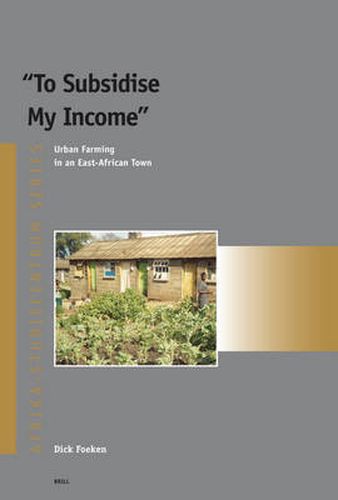Readings Newsletter
Become a Readings Member to make your shopping experience even easier.
Sign in or sign up for free!
You’re not far away from qualifying for FREE standard shipping within Australia
You’ve qualified for FREE standard shipping within Australia
The cart is loading…






Urban agriculture in sub-Saharan Africa has gained momentum in recent years in terms of research and policy, as well as in practical terms. The paradox of accelerated urbanisation and the increase in urban agriculture in developing countries is widely recognised. More than ever before, urban residents all over the developing world are cultivating urban plots and/or keeping animals to sustain their livelihoods. This volume looks at urban farming in the Kenyan town of Nakuru and is based on surveys and in-depth studies carried out by various researchers, including Kenyan Masters students. It considers farming techniques, the socio-economic aspects of urban farming and the environmental issues involved, and there is also a chapter on school farming. Specific attention is paid to urban farming in relation to poverty, with the conclusion being that those who depend on urban agriculture the most are, in fact, benefiting the least from it.
$9.00 standard shipping within Australia
FREE standard shipping within Australia for orders over $100.00
Express & International shipping calculated at checkout
Urban agriculture in sub-Saharan Africa has gained momentum in recent years in terms of research and policy, as well as in practical terms. The paradox of accelerated urbanisation and the increase in urban agriculture in developing countries is widely recognised. More than ever before, urban residents all over the developing world are cultivating urban plots and/or keeping animals to sustain their livelihoods. This volume looks at urban farming in the Kenyan town of Nakuru and is based on surveys and in-depth studies carried out by various researchers, including Kenyan Masters students. It considers farming techniques, the socio-economic aspects of urban farming and the environmental issues involved, and there is also a chapter on school farming. Specific attention is paid to urban farming in relation to poverty, with the conclusion being that those who depend on urban agriculture the most are, in fact, benefiting the least from it.